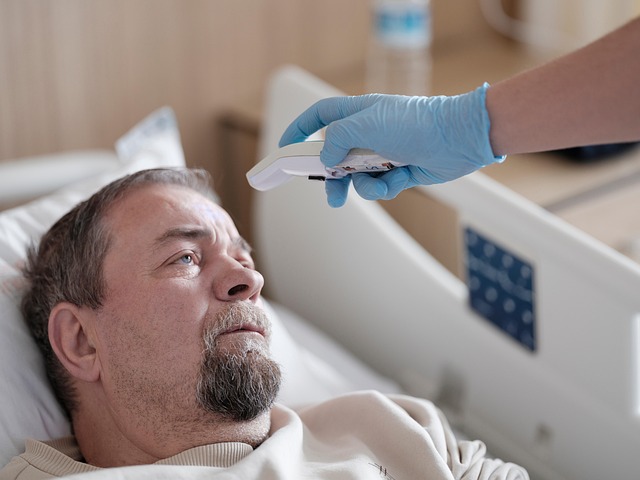Group counseling is a powerful tool in treating prescription painkiller addiction, offering supportive communities for sharing experiences and strategies. Effective for individuals with co-occurring disorders or complex trauma histories, these sessions provide safe spaces to discuss sensitive topics related to addiction. Rehabilitation programs increasingly incorporate group counseling, combining it with mindfulness techniques, holistic wellness activities like yoga and meditation, and treatments for co-occurring disorders for comprehensive healing. Online recovery support groups further expand access to these resources, catering to those seeking alternative or supplemental help outside traditional settings.
Group counseling sessions play a pivotal role in addressing the complex nature of prescription painkiller addiction. By facilitating collective sharing, these sessions uncover the underlying issues driving addictive habits. This article explores the benefits of group counseling within rehabilitation programs, delving into effective strategies and techniques employed to foster healing and support among peers. Understanding group counseling offers a powerful approach to overcoming prescription painkiller addiction.
- Understanding Group Counseling for Prescription Painkiller Addiction
- Benefits of Collective Sharing in Rehabilitation Programs
- Strategies and Techniques Employed in Group Sessions
Understanding Group Counseling for Prescription Painkiller Addiction

Group counseling offers a unique and effective approach to addressing prescription painkiller addiction. In these sessions, individuals come together to share their experiences, struggles, and strategies for overcoming addiction. This collective setting fosters a sense of community and understanding, where participants can learn from one another’s journeys. By discussing the underlying causes and triggers associated with painkiller abuse, group counseling helps individuals recognize patterns and gain insights into their own behaviors.
This therapeutic method is particularly beneficial for those dealing with co-occurring disorders or complex trauma histories, as it provides a safe space to explore these sensitive issues. Many rehabilitation programs for prescription painkiller addiction incorporate group counseling as part of their comprehensive treatment plans, ensuring that individuals receive both individual and collective support throughout their recovery journey. Trauma-informed care and recovery support groups online can also be valuable resources for those seeking alternative or supplemental support outside of traditional counseling settings.
Benefits of Collective Sharing in Rehabilitation Programs

Group counseling sessions play a pivotal role in rehabilitation programs for prescription painkiller addiction by fostering an environment that encourages collective sharing and mutual support. In this setting, individuals struggling with addiction gain valuable insights from hearing their peers’ experiences, which can help them understand the complex nature of their habits and the underlying triggers fueling them. This process not only promotes self-awareness but also provides a safe space to explore and express emotions and challenges associated with recovery.
By integrating mindfulness techniques for stress relief, co-occurring disorder treatment options, and holistic wellness programs such as yoga, meditation, and nutrition into these sessions, rehabilitation becomes more comprehensive. These complementary approaches aid in addressing not just the physical aspects of addiction but also the psychological and emotional dimensions. Holistic healing, encompassing body, mind, and spirit, is facilitated through collective sharing, enhancing the overall effectiveness of rehabilitation programs for prescription painkiller addiction.
Strategies and Techniques Employed in Group Sessions

In group counseling sessions focused on prescription painkiller addiction, facilitators employ a range of effective strategies to create a safe, supportive environment where participants can openly share their experiences. These sessions encourage peer-to-peer support, fostering a sense of community among individuals facing similar challenges. Techniques such as structured discussions, interactive activities, and guided meditations help participants explore the psychological and emotional aspects of addiction, promoting self-awareness and understanding. By sharing stories and insights, group members gain valuable perspectives on their behaviors and triggers, laying the groundwork for behavioral change.
Integrating holistic wellness practices like yoga, meditation, and nutrition education further enhances these sessions. Many addiction treatment centers specializing in specific substances recognize the interconnectedness of physical, mental, and emotional well-being. Co-occurring disorder treatment options tailored to address underlying conditions such as depression or anxiety alongside addiction can significantly improve outcomes. Holistic wellness programs offer a comprehensive approach, focusing on deep healing by nurturing both mind and body, ultimately empowering individuals to sustain recovery in the long term.
Group counseling sessions offer a powerful tool within rehabilitation programs for prescription painkiller addiction. By facilitating collective sharing, these sessions address the underlying issues driving addictive habits, providing individuals with a supportive environment to process their experiences and gain valuable insights. Through proven strategies and techniques, group counseling empowers participants to take control of their recovery and cultivate healthier coping mechanisms. This holistic approach not only enhances individual healing but also fosters a sense of community among those navigating the complexities of prescription painkiller addiction.






